Table
ToggleSafe Alternative to Alfalfa Sprouts for Rabbits
Risks of Feeding Alfalfa Sprouts to Rabbits
Feeding alfalfa sprouts to rabbits can pose several risks. Alfalfa sprouts are high in calcium and protein, which can be problematic for adult rabbits. Excess calcium can lead to urinary issues, including bladder stones. Additionally, the high protein content can contribute to obesity and other health problems if fed in large quantities. It’s crucial to monitor your rabbit’s diet and avoid overfeeding alfalfa sprouts to keep them healthy.
Effects of Eating Alfalfa Sprouts on Rabbits
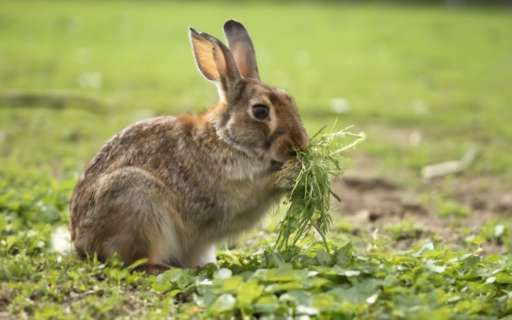
Are Alfalfa Sprouts Good for Rabbits?
Alfalfa sprouts can be good for young, growing rabbits and lactating due to their high nutritional content. They provide a rich source of calcium and protein, which supports growth and milk production. However, for adult rabbits, the high levels of these nutrients can be detrimental. It’s essential to balance their diet with other fresh vegetables and hay to ensure they receive the proper nutrition without the risks associated with alfalfa sprouts.
Nutritional Value of Alfalfa Sprouts for Rabbits
Alfalfa sprouts are packed with nutrients, including vitamins A, C, and K, as well as calcium, iron, and potassium. They also contain protein and fiber, which are important for a rabbit’s diet. However, the high calcium and protein content can be too much for adult rabbits, making it necessary to feed them in limited quantities. Younger rabbits can benefit more from these nutrients during their growth stages.
How Are Alfalfa Sprouts Made?
Types of Alfalfa Sprouts Safe for Rabbits
Not all sprouts are created equal, and some may be safer for rabbits than others. When choosing alfalfa sprouts for your rabbit, opt for organic, pesticide-free varieties to minimize the risk of chemical exposure. It’s also crucial to ensure the sprouts are fresh and free from mold or bacteria, as spoiled sprouts can cause digestive issues. Always source your sprouts from a reputable supplier.
Do Wild Rabbits Eat Alfalfa Sprouts?
Wild rabbits do not typically eat alfalfa sprouts in their natural habitat. They prefer a diet of grasses, herbs, and leafy greens found in the wild. Alfalfa plants might be consumed in small amounts if available, but sprouts are not a common part of their diet. Domestic rabbits have different dietary needs and restrictions compared to their wild counterparts, so it’s important to feed them appropriately.
Why Are Alfalfa Sprouts Harmful to Rabbits?
Alfalfa sprouts can be harmful to rabbits due to their high calcium and protein content. Excessive calcium can lead to urinary issues, including bladder stones, while too much protein can contribute to obesity and other health problems. Feeding alfalfa sprouts in large quantities can upset a rabbit’s delicate digestive system, causing discomfort and potential illness. It’s best to offer them as an occasional treat rather than a staple food.
Store-bought alfalfa Sprouts and Rabbits
Store-bought alfalfa sprouts can be fed to rabbits, but it’s important to choose the right kind. Look for organic, pesticide-free sprouts to ensure they are safe for your pet. Avoid sprouts that appear wilted, slimy, or have an off smell, as these can be signs of spoilage. Always rinse store-bought sprouts thoroughly before offering them to your rabbit to remove any potential contaminants.
Fresh Food Leads to Stomach Overload and Digestive Issues?
Diet Should Be Made Up of 70% Hay, 30% Fresh Food?
A rabbit’s diet should indeed be made up of around 70% hay and 30% fresh food, including vegetables and greens. Hay provides essential fiber that supports their digestive health, while fresh foods offer vitamins and minerals. This balanced diet helps maintain their overall well-being and prevents digestive issues. Alfalfa sprouts can be part of the fresh food portion but should be given sparingly due to their high calcium and protein content.
Foods That Can Be Offered Without Restriction
Foods that can be offered to rabbits without restriction include high-quality hay and fresh water. Hay is the cornerstone of a rabbit’s diet and should always be available. It supports their digestive health and helps them wear down their teeth. Fresh water is essential for hydration and overall health. While some vegetables and greens are safe, they should still be given in moderation to avoid digestive issues.
How Often Can My Rabbit Eat Alfalfa Sprouts?
Alfalfa sprouts should be given to your rabbit in moderation, ideally no more than once or twice a week. Due to their high calcium and protein content, it’s important to limit their intake to prevent health issues. Monitor your rabbit’s reaction to the sprouts and adjust the frequency accordingly. If your rabbit shows any signs of discomfort or digestive problems, reduce the amount or stop feeding them altogether.
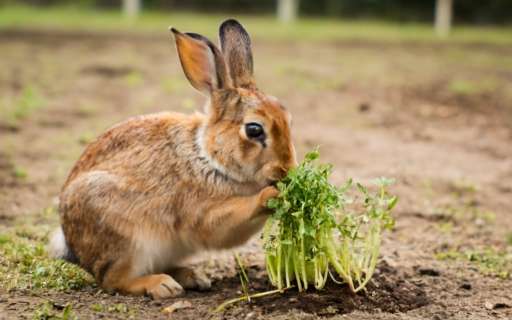
Feeding Rabbits Fresh and Dried Fruits
Can I Give My Rabbit Dried Fruit?
Dried fruit can be given to rabbits, but it should be very seldom and in small quantities. Dried fruits have a higher concentration of sugar compared to fresh fruits, which can lead to obesity and dental problems if overfed. A small piece of dried apple or apricot can be a nice treat, but make sure it’s not a regular part of their diet. Fresh fruits are a better option for occasional treats.
How Many Types of Alfalfa Sprouts Are There?
There are various types of alfalfa sprouts, including different stages of sprout growth. Some may be harvested when they are just beginning to sprout, while others are left to grow longer. The nutritional content can vary slightly depending on the growth stage, but all types of alfalfa sprouts should be fed to rabbits in moderation due to their high calcium and protein content.
Observing Your Rabbit After Eating Alfalfa Sprouts
After feeding your rabbit alfalfa sprouts, observe them for any signs of digestive discomfort or changes in behavior. Symptoms such as reduced appetite, bloating, or lethargy can indicate that the sprouts are not agreeing with them. If you notice any adverse effects, discontinue feeding the sprouts and consult your veterinarian. Monitoring your rabbit’s health ensures they stay happy and healthy.
What About Alfalfa Sprouts Seeds and Leaves?
While alfalfa sprouts are sometimes offered to rabbits, the seeds and leaves are generally not recommended. Alfalfa seeds can be hard for rabbits to digest and may pose a choking hazard. The leaves, on the other hand, are higher in calcium and protein than the sprouts themselves, making them even less suitable for regular feeding. It’s best to stick to small amounts of the sprouts and avoid seeds and leaves.
Tips for Serving Alfalfa Sprouts to Bunnies
When serving alfalfa sprouts to your bunny, make sure to rinse them thoroughly to remove any dirt or contaminants. Offer a small amount at first to see how your rabbit reacts. If they enjoy the sprouts and show no signs of digestive upset, you can continue to offer them occasionally. Always provide a balanced diet with plenty of hay and fresh water to support their overall health.
How Does Alfalfa Sprout Digestion in Rabbits?
Rabbits have a unique digestive system that requires a balance of fiber and nutrients. Alfalfa sprouts, while nutritious, can be challenging for rabbits to digest due to their high calcium and protein content. Feeding too many sprouts can disrupt their digestive balance, leading to issues like gas, bloating, and discomfort. It’s important to offer sprouts in moderation and monitor your rabbit’s digestive health.
What Are the Nutritional Benefits of Eating Alfalfa Sprouts for Rabbits?
Alfalfa sprouts provide several nutritional benefits for rabbits, especially young, growing ones. They are rich in vitamins A, C, and K, as well as calcium, iron, and potassium. These nutrients support growth, bone health, and overall well-being. However, for adult rabbits, the high calcium and protein content can be excessive, making it important to feed sprouts sparingly and balance their diet with other foods.
Do Rabbits Enjoy Alfalfa Sprouts Food?
Many rabbits enjoy the taste of alfalfa sprouts and find them a tasty treat. The crunchy texture and fresh flavor can be appealing to them. However, it’s essential to remember that just because they enjoy it doesn’t mean it should be a staple in their diet. Moderation is key to ensuring they receive the benefits without the risks associated with overconsumption.
What Parts of Alfalfa Sprouts Can Rabbits Eat?
Rabbits can eat the entire alfalfa sprout, but it’s best to avoid feeding them the seeds and leaves. The sprouts themselves are more suitable, although still high in calcium and protein. Offering just the sprouts in small amounts can be a safe way to provide some variety in their diet. Always ensure the sprouts are fresh and free from mold or contamination before feeding them to your rabbit.
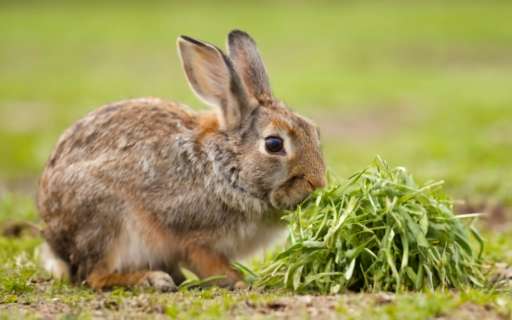
Can Rabbits Eat Alfalfa Sprouts Seeds?
It’s generally not recommended to feed alfalfa sprout seeds to rabbits. The seeds can be difficult for them to digest and may pose a choking hazard. Instead, focus on offering the sprouts themselves in moderation. The seeds do not provide any additional nutritional benefits that the sprouts don’t already offer, so it’s safer to avoid them altogether.
Can Alfalfa Sprouts Be Toxic to Rabbits?
Alfalfa sprouts are not inherently toxic to rabbits, but feeding them in large quantities can lead to health issues. The high calcium and protein content can cause urinary problems and contribute to obesity if overfed. While small amounts are generally safe, it’s crucial to monitor your rabbit’s intake and ensure their diet is balanced with plenty of hay and other fresh vegetables.
Can Alfalfa Sprouts Cause Digestive Problems in Rabbits?
Yes, alfalfa sprouts can cause digestive problems in rabbits if fed in excess. Their high calcium and protein content can disrupt the delicate balance of a rabbit’s digestive system, leading to gas, bloating, and discomfort. To avoid these issues, offer alfalfa sprouts in moderation and ensure they are part of a balanced diet that includes plenty of hay and fresh water.
How Do You Introduce Your Bunny to Alfalfa Sprouts?
When introducing alfalfa sprouts to your bunny, start with a small amount to see how they react. Offer a few sprouts alongside their regular food and observe for any signs of digestive upset or changes in behavior. If your rabbit enjoys the sprouts and shows no adverse effects, you can continue to offer them occasionally. The gradual introduction helps ensure they can tolerate the new food without issues.
Preparing Alfalfa Sprouts for Rabbits
To prepare alfalfa sprouts for your rabbit, start by rinsing them thoroughly to remove any dirt or contaminants. Ensure the sprouts are fresh and free from mold. Offer a small amount at first, mixed with their regular food, to see how they react. Always provide fresh water and plenty of hay to support their digestive health. If they tolerate the sprouts well, you can offer them as an occasional treat.
How Do Rabbits Eat Alfalfa Sprouts?
Rabbits typically eat alfalfa sprouts by nibbling on them, enjoying their crunchy texture and fresh taste. They may chew the sprouts thoroughly to break them down before swallowing. Ensure the sprouts are fresh and properly prepared to make them more appealing and safe for your rabbit. Always supervise their eating to ensure they don’t choke and to monitor their reaction to the new food.
What Happens If Rabbits Eat Too Much Alfalfa Sprouts?
If rabbits eat too much alfalfa sprouts, they may experience digestive problems such as gas, bloating, and discomfort. The high calcium and protein content can also lead to urinary issues and contribute to obesity over time. To prevent these problems, feed alfalfa sprouts in moderation and ensure they are part of a balanced diet with plenty of hay and other fresh vegetables.
What If My Rabbit Eats a Large Amount of Alfalfa Sprouts?
If your rabbit eats a large amount of alfalfa sprouts, monitor them closely for any signs of digestive upset or changes in behavior. Symptoms such as reduced appetite, lethargy, or bloating can indicate that they are experiencing discomfort. If you notice any of these signs, contact your veterinarian for advice. In the future, limit their access to alfalfa sprouts to prevent overconsumption.
How Much Alfalfa Sprouts Can My Rabbit Eat?
Your rabbit should only eat a small amount of alfalfa sprouts, ideally no more than once or twice a week. A few sprouts mixed with their regular food can provide some variety without overwhelming their digestive system. Always monitor your rabbit’s reaction to the sprouts and adjust the amount accordingly. If they show any signs of discomfort, reduce the quantity or stop feeding them altogether.
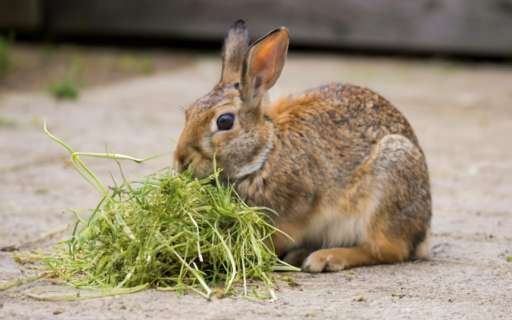
When Shouldn’t You Feed Alfalfa Sprouts to Your Rabbit?
You shouldn’t feed alfalfa sprouts to your rabbits if they have a history of urinary issues, obesity, or digestive problems. Additionally, adult rabbits generally don’t need the high calcium and protein content found in alfalfa sprouts. It’s best to offer them as an occasional treat rather than a regular part of their diet. Consult your veterinarian if you have any concerns about feeding alfalfa sprouts to your rabbit.
Can Baby Rabbits Eat Alfalfa Sprouts?
Baby rabbits can eat alfalfa sprouts in moderation, as they can benefit from the high calcium and protein content during their growth stages. However, it’s important to introduce them gradually and observe for any signs of digestive upset. As they grow older, transition them to a diet that includes more hay and a variety of fresh vegetables to ensure balanced nutrition.
How Frequently Should Adult and Baby Rabbits Be Fed Alfalfa Sprouts?
Adult rabbits should be fed alfalfa sprouts no more than once or twice a week, while baby rabbits can have them slightly more often due to their higher nutritional needs during growth. Always introduce sprouts gradually and monitor for any signs of digestive issues. Adjust the frequency based on your rabbit’s reaction and overall health.
Potential Dangers in Alfalfa Sprouts
Potential dangers in alfalfa sprouts include high calcium and protein content, which can lead to urinary issues and obesity if fed in large quantities. Additionally, if the sprouts are not fresh or are contaminated with mold or bacteria, they can cause digestive problems and illness. Always ensure the sprouts are fresh, properly prepared, and offered in moderation to avoid these risks.
What If My Rabbit Accidentally Eats a Lot of Alfalfa Sprouts?
If your rabbit accidentally eats a lot of alfalfa sprouts, monitor them closely for any signs of digestive upset or discomfort. Symptoms such as bloating, reduced appetite, or lethargy can indicate a problem. If you notice any of these signs, contact your veterinarian for advice. In the future, limit their access to alfalfa sprouts to prevent overconsumption and potential health issues.
Monitoring Your Rabbit’s Health with Alfalfa Sprouts
When feeding alfalfa sprouts to your rabbit, it’s important to monitor their health closely. Observe their eating habits, behavior, and any signs of digestive upset or discomfort. Regular veterinary check-ups can help ensure your rabbit remains healthy. If you notice any changes in their health after introducing alfalfa sprouts, adjust their diet accordingly and consult your veterinarian.
Incorporating Fresh Greens and Vegetables
Incorporating fresh greens and vegetables into your rabbit’s diet is essential for their overall health. Offer a variety of safe vegetables such as romaine lettuce, kale, cilantro, and parsley. These greens provide essential vitamins and minerals that support their well-being. Always introduce new foods gradually and monitor for any signs of digestive upset. A balanced diet with plenty of hay is key to a healthy rabbit.
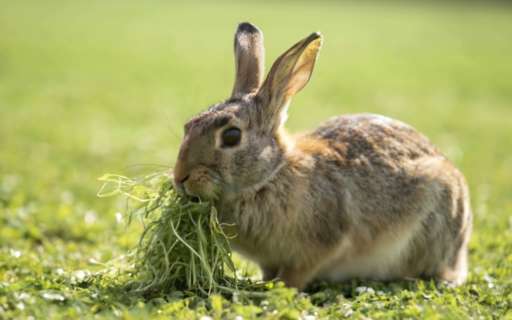
What Actions Should I Take if My Rabbit Consumes Alfalfa Sprouts?
If your rabbit consumes alfalfa sprouts, observe them for any signs of digestive upset or changes in behavior. If they appear to be comfortable and show no adverse effects, you can continue to offer the sprouts occasionally. However, if you notice any symptoms such as bloating or reduced appetite, discontinue feeding the sprouts and consult your veterinarian. Always ensure their diet is balanced with plenty of hay and fresh water.
Creating a Balanced Diet With Alfalfa Sprouts
Creating a balanced diet for your rabbit with alfalfa sprouts involves offering them in moderation alongside a variety of other fresh vegetables and plenty of hay. Alfalfa sprouts can be an occasional treat but should not be a staple food due to their high calcium and protein content. Ensure your rabbit has access to fresh water at all times and monitor their health regularly to maintain their well-being.
My Rabbit Ate a Whole Alfalfa Sprouts?
If your rabbit ate a whole bunch of alfalfa sprouts, monitor them for any signs of digestive upset or discomfort. Symptoms such as bloating, reduced appetite, or lethargy can indicate a problem. If you notice any of these signs, contact your veterinarian for advice. In the future, limit their access to alfalfa sprouts to prevent overconsumption and potential health issues.
Can Rabbits Eat Wild Alfalfa Sprouts?
Rabbits can eat wild alfalfa sprouts, but it’s important to ensure they are free from pesticides, herbicides, and other contaminants. Wild plants can sometimes carry harmful substances that are not safe for rabbits. If you are unsure about the safety of wild alfalfa sprouts, it’s best to avoid feeding them to your rabbit and stick to organic, store-bought options.
What Else Can I Feed My Rabbit Besides Alfalfa Sprouts?
Besides alfalfa sprouts, you can feed your rabbit a variety of fresh vegetables such as romaine lettuce, kale, cilantro, and parsley. High-quality hay should make up the majority of their diet. You can also offer occasional treats like small pieces of apple or carrot. Always introduce new foods gradually and monitor for any signs of digestive upset to ensure your rabbit stays healthy.
How to Create a Rabbit-Friendly Garden?
Creating a rabbit-friendly garden involves planting a variety of safe vegetables and herbs that your rabbit can enjoy. Consider growing romaine lettuce, kale, parsley, and cilantro. Avoid plants that are toxic to rabbits, such as certain types of flowers and ornamental plants. Ensure the garden is free from pesticides and other harmful chemicals. A rabbit-friendly garden provides fresh, nutritious options for your pet.

Alfalfa Sprouts Feeding Guidelines and Amounts
When feeding alfalfa sprouts to your rabbit, follow these guidelines: offer a small amount no more than once or twice a week. Monitor your rabbit’s reaction and adjust the quantity accordingly. Always ensure the sprouts are fresh and free from contaminants. A balanced diet with plenty of hay and other fresh vegetables is essential for your rabbit’s overall health.
Rabbit Treats Made at Home With Alfalfa Sprouts
You can make homemade rabbit treats using alfalfa sprouts by combining them with other safe ingredients like rolled oats and fresh vegetables. Mix the ingredients into small, bite-sized portions and offer them to your rabbit occasionally. Homemade treats can be a fun and nutritious way to provide variety in your rabbit’s diet. Always ensure the ingredients are safe and monitor your rabbit’s reaction to new threats.
Conclusion
FAQs
Can rabbits eat alfalfa sprouts every day?
No, alfalfa sprouts should be given in moderation, no more than once or twice a week.
Are alfalfa sprouts safe for baby rabbits?
Yes, in moderation. They can benefit from the nutrients during growth stages.
What are the risks of feeding alfalfa sprouts to rabbits?
High calcium and protein can cause urinary issues and obesity if overfed.
What should I do if my rabbit eats too many alfalfa sprouts?
Monitor for signs of discomfort or digestive issues and consult your vet if needed.
Can wild rabbits eat alfalfa sprouts?Wild rabbits typically do not eat alfalfa sprouts; their diet consists of grasses and leafy greens.
What vegetables can I feed my rabbit besides alfalfa sprouts?
Romaine lettuce, kale, cilantro, and parsley are great options.
Are alfalfa sprout seeds safe for rabbits?
No, it’s best to avoid seeds as they can be hard to digest and pose a choking hazard.











